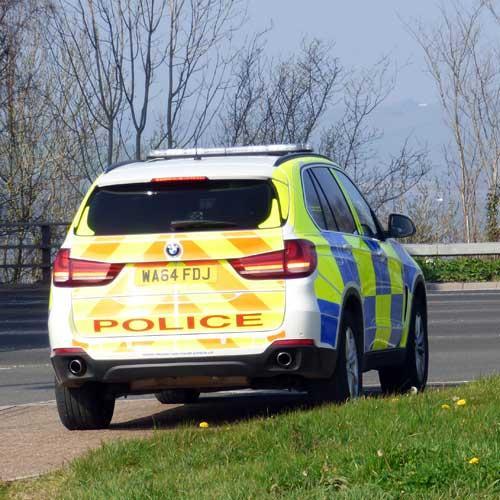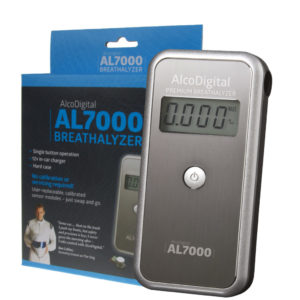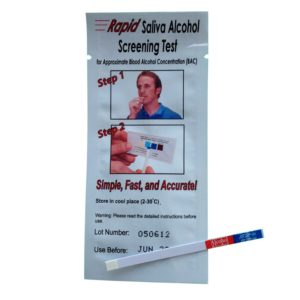Scottish politician, Justice Secretary Michael Matheson, recently announced plans by the Scottish Government to draft new ‘zero tolerance’ laws relating to people who drive a vehicle after taking drugs. These new laws will go a long way to support Mr Matheson’s pledge to deter drivers who put their own and other innocent people’s lives in danger by driving whilst under the influence of drugs.
The Current Law
Currently, the law states that it is an offence to drive a vehicle while impaired by drugs, whether those drugs are illegally or legally obtained, and this law will not change. However, the intention of the Scottish Government now is to expand this law, making it easier to detect and prosecute people who ‘drug-drive’.
At the moment, the procurator fiscal with the responsibility of prosecuting criminal charges must provide evidence to a court of law that the driver concerned was driving under the influence of drugs, and also that because of their drug use the driver’s ability to drive was impaired.
The Proposed New Law
With the proposed new law there will be no requirement to prove that the person’s driving was in fact affected by their drug use. Once this law comes into effect in October 2019, it will be much easier for police to target people operating vehicles whilst having cocaine, cannabis, and other illegal drugs in their bloodstream.
Currently, there are a range of circumstances whereby Scotland Police can administer roadside breath testing for drink-driving, whether they suspect drink-driving or not, and should a driver test over the legal limit, actions will be taken. This is regardless of whether the actual driving itself caused concern to the police. The new drug-driving laws to be introduced in Scotland would mean that anyone operating a vehicle with more than specific limits of certain drugs in their system, could be prosecuted. With the manner of driving no longer being an issue, it will be much easier for police to address the problem of drug-driving. The intention of the new law is that it must be established that the person driving was driving while above the drug limits as specified.
Scottish Government Serious About Road Safety
The intention of the Scottish Government is that road safety must be a priority, and because the drink-driving limit was unanimously passed in 2014 by the Parliament, it’s fully expected that the new drug-driving laws will also be passed. In 2014, legal alcohol limits for drink-driving offences were reduced to 50 mg (down from 80 mg) per 100ml of blood. Under the proposed new legislation, eight illegal drugs including ketamine, heroine, and ecstasy, will have set limits very close to zero. These limits will be set to prevent ‘accidental exposure’ claims. Higher limits will be set for drugs like methadone and diazepam, which can be used for medicinal purposes, and these limits will be determined by their likelihood to impair drivers.
How Will the New Drug-Driving Law Affect Drivers?
What this new law will mean is that drivers over the specified limits can be prosecuted for having drugs in their system. And, they could be caught for drug-driving days after using an illegal drug. Let’s say it’s been several days since you used an illegal drug: you could still be convicted of drug driving even though there was no visible impairment of your driving ability. No longer will there be a requirement for law enforcement to prove that your driving was impaired. It should be noted that cocaine can be detected in your body for up to 4 days and cannabis can be detected for up to one month. This means that, days after using an illegal drug, you could fail a drug driving test, simply because the drug can still be detected in your bloodstream. The Scottish Government believes that, once the new drug-driving law is passed, there will be a substantial increase in the number of drivers charged and convicted of drug driving.
Tough Drug-Driving Laws for Scotland
Justice Secretary Humza Yousaf is the Cabinet Secretary for Justice in Scotland. He said that drug-driving is completely unacceptable and that the Scottish Government intends to do everything in its power to prevent avoidable damage and deaths caused by people who drive vehicles whilst under the influence of drugs. He added that the combination of Scotland’s stringent drink-driving law and the soon-to-be-enforced drug-driving laws will mean that Scotland has the strongest laws in the United Kingdom against unsafe and impaired driving.
Chief Inspector Stephen Innes from Scotland Police said that his department is committed to tackling drug and drink-driving in an effort to reduce road casualties. He added that it cannot be understated just how devastating the impact of drug-driving is on the victims, the community in general, and also on the drivers themselves. Chief Inspector Innes said that the introduction of the new legislation will enhance the Police Department’s ability to both detect and discourage all drivers who engage in this dangerous behaviour.
The ‘Drugalyser’
In 2015 in England and Wales, law enforcement started cracking down on drug-driving by checking for cocaine and cannabis use using a device known as a ‘Drugalyser’. Testing is carried out using a mouth swab, which reveals if drugs are present. If a driver has used illegal drugs, a blue line will appear after eight minutes. It’s not yet known whether Scotland Police will use these specific machines for their crackdown on drugs; however, it is believed they will expand their use of field impairment tests. These machines test for all drugs and assess the driver’s coordination and balance.
At the moment it’s an offence under existing laws in Scotland to be in control of any vehicle while under the influence of drink or drugs. The current penalties are up to 6 months in prison, a minimum driving ban of 12 months, and a fine of up to £5000. Under the new law to be introduced on October 21st, the new offence of operating a vehicle while over the drug limits as specified will work in conjunction with the current offence, with the same maximum penalties applying.



